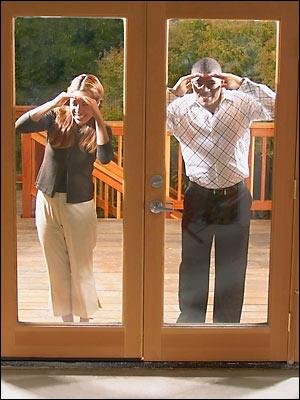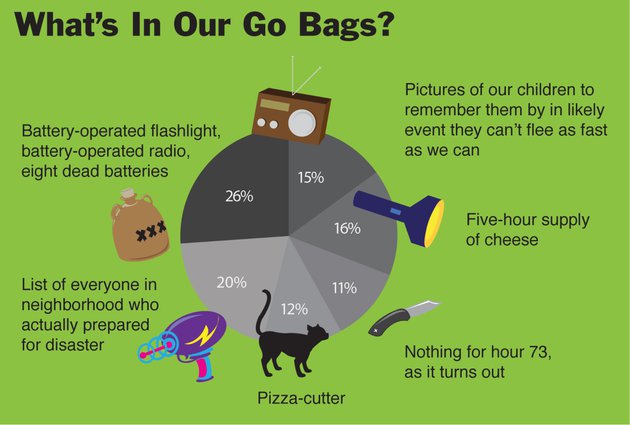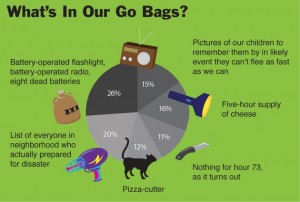It’s OK to admit that we have all felt out the neighbors to see how preparedness-minded they were. We drop a simple statement about being prepared and hold our breath hoping they too are preparedness-minded. They take this as an opportunity to invite themselves to your house for the next big disaster by saying, “Well I know where we’re coming if there’s a disaster.”

Sadly, most of our neighbors are like a majority of our society – under prepared for an emergency and simply do not see the need in storing a bunch of useless supplies for a “just in case” scenario. Many living among us have a normalcy bias and believe they are untouchable in terms of disasters occurring in their lives. Because of the illusions [1] they choose to believe, if a serious disaster were to occur, then they would be completely caught off guard. In fact, they will believe the disaster is just like all the others, where they are out of work for a few days and can kick back, BBQ in the yard and drink some beers with the neighbors.
“Honey, the Neighbors Are Coming.”
FEMA has suggested that each household should have at a minimum a two week supply of food. But let’s be honest, you and maybe another guy in the neighborhood are the only one’s who paid attention to what FEMA said. Therefore, when that inevitable disaster hits, it makes you everyone’s favorite neighbor. If they know that you have supplies, they will make a beeline to your house. But they wouldn’t want to impose, so they of course bring their bug out bags. (See image below). At this point, you must ask yourself, “Are you ready for more mouths to feed? Will you be able to turn them away? Do you have enough food for the neighborhood?”

Empower the Neighbors
Inspiring the preparedness mindset in your neighbors may be the only way to avoid the entire neighborhood heading to your house after a disaster occurs. However, this is a sensitive subject and should be handled carefully. On one hand, you want to make the neighborhood stronger and more resilient [2] to handle disasters. On the other hand, there is a certain amount of OPSEC [3] that you want to maintain. But you have to admit that having most, if not all of the households in the neighborhood prepared with supplies will make for a strong and very prepared community.
Here are a few ways to approach getting your neighbors prepared:
- After an unexpected natural storm, non-chalantly bring up to a neighbor how you wish you had more preparedness supplies in case things get really bad. Then, you can suggest to that neighbor that perhaps you could both go in 50/50 on some supplies.
- Neighborhood committees can do all the work so that you can maintain some security about your own preparations. Suggest to the neighborhood committee the importance of getting people prepared for disasters. Hand out a preparedness checklist [4] for the neighborhood committee to give to the community and suggest at the next meeting they could have a bulk order for preparedness supplies [5]. (Contact a local preparedness LDS warehouse to see if you can get a discount for buying products by the truckload).
- Suggest at the next neighborhood committee that they could create a disaster preparedness team [6] to help encourage others in the neighborhood.
- At a block party, or get together, drop the preparedness conversation to your neighbors and bring up the latest disaster in the news and how unprepared some of the victims were. You could then suggest that the neighborhood take a preparedness challenge [7] for 30 days and that it can be done on a modest budget. This is where you tell them that you found out that a 6 month food supply for 1 person can be purchased for a modest $115 [8].
Neighbors Helping Neighbors
Doing the “neighborly thing” doesn’t mean that you have to let the entire neighborhood into your house to consume your preparedness supplies. In fact, empowering your neighborhood would be a better option. Having a neighborhood prepared and ready for disasters will minimize the impact of the disaster, not to mention create a stronger and more prepared community. We can sit and complain about how unprepared everyone else is, or we can do our part and help them understand the importance of preparedness.
